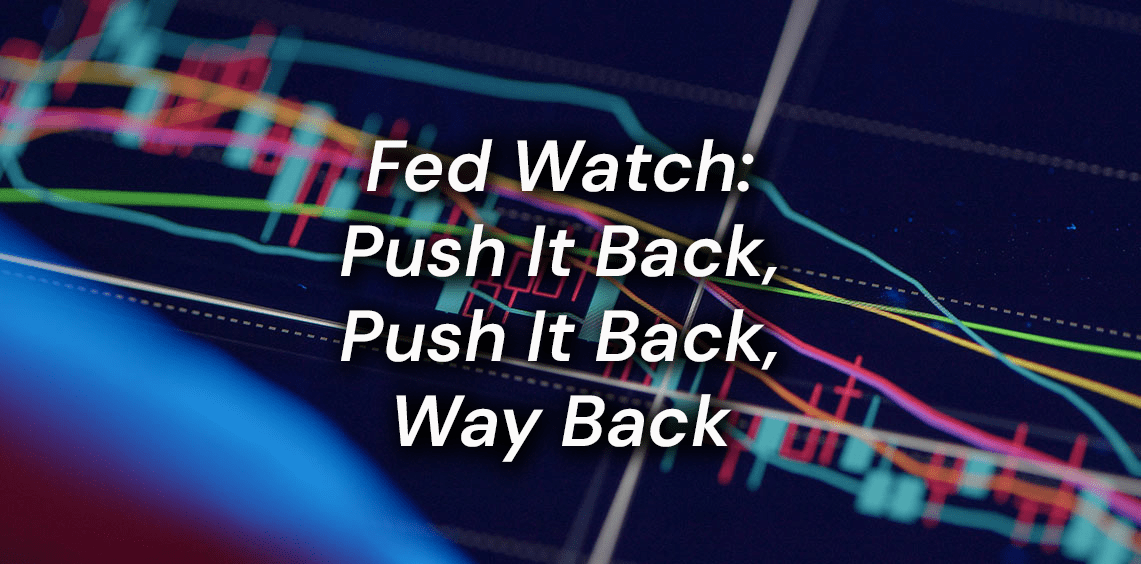The following is part 2 of a two-part summary of WisdomTree’s recent Crypto Clarified podcast episode. The discussion is between Benjamin Dean, Director of Digital Assets; Ryan Louvar, Chief Legal Officer and Head of Business and Legal Affairs; and Jeremy Schwartz, Global Chief Investment Officer at WisdomTree.
Part 2 covers Ripple vs the SEC.
Jeremy Schwartz:
Let’s go back to the Ripple case, can you explain this concept of crypto asset securities?
Ryan Louvar:
In this explanation, I’ll take us back to the 1940s.
The U.S. Securities and Exchange Commission (SEC) has been very focused on indicating that a significant majority of cryptocurrencies are securities. The SEC has then filed enforcement actions or litigation against certain cryptocurrency issuers. The issuer of XRP Ripple is one of those that has been sued by the SEC. The heart of the issue is that, thinking about the definition of a security, if you look in the statute, you’ll see things like stocks, bonds, but then a few lines down is this term ‘investment contract’.
And so, essentially, the SEC has taken the position, through enforcement actions or these cases that they’re litigating, that certain digital assets are investment contracts. And that takes us then to the 1940s where there’s this Supreme Court case called the SEC vs Howey.
What that case determined is the question of whether there was an investment contract, a security, in an offering of an orange grove coupled with a contract for cultivating the oranges, marketing the oranges, and then remitting proceeds to those investors?
Taking a step back, if I’m selling you an orange grove, nobody would call that a security. I’m just selling you an orange grove or I’m selling you an orange. But if I’m doing other things to potentially enhance the value of that orange through this enterprise, where then your expectation of profits is from what I’m doing, that is then an investment contract.
The Supreme Court indicated that, in fact, there was an investment contract. And really it comes down to four factors, but I’ll articulate it as three as the court did in the Ripple case.
And it’s really an (1) investment of money (2) in a common enterprise with (3) expectation of profits solely from the efforts of a promoter or a third party.
The SEC has, over time, through either enforcement actions or even pronouncements and statements, broadened the interpretation of what each of those elements mean and how those elements might be met.
So right now, we have a fairly broad landscape as largely determined by the SEC, not by the courts, around what would meet this definition that is now seeing some challenge in the courts. And honestly, for the litigated cases to-date, the SEC has largely been on the winning side.
This was really the first time where there was a decision that said, “Wait a second, we actually don’t have a security here, not an investment contract.” So, maybe I’ll stop there and then we can dig into the weeds a little more on exactly what that meant. It is very nuanced.
The headline item though, which I think the crypto industry really cheered for, was that the judge said XRP, inherently, is not a security, it’s basically just a digital token. You end up with a situation where the SEC is saying crypto assets are securities and then you have a judge saying inherently this crypto asset is not a security. It would seem to be a win, certainly, for the crypto industry. Then, the judge said, if you’re talking about an investment contract, that’s very facts and circumstances specific, so you really need to look at the facts and circumstances. And there were a couple of different instances that she looked at.
The judge considered a few aspects of XRP sales as securities. First, she examined sales made to sophisticated institutions, where Ripple executives directly sold XRP to hedge funds and similar entities, along with making statements about XRP. In this instance, the judge ruled that these sophisticated purchasers understood Ripple’s business and had an expectation of profits from Ripple’s actions, leading to an investment contract determination. This ruling was a win for the SEC.
However, the judge then evaluated programmatic sales on exchanges, where buyers might not have been aware they were buying from Ripple and might not have had profit expectations from Ripple’s efforts. Many of these buyers were likely unsophisticated and purchased XRP purely for speculative purposes. In these cases, the judge concluded that there was no investment contract, especially with regards to the expectation of profits from others. This aspect of the ruling emboldened exchanges, as it suggested that listing tokens might not constitute investment contracts.
While the ruling brought some clarity, there’s still ambiguity, particularly regarding the status of crypto sales on exchanges. The exchanges seem to be more confident in their prior analysis that the assets they list aren’t securities, supported further by this decision. Additionally, the judge ruled that Ripple’s distribution of XRP to other third parties, such as employees, was not an investment contract.
Despite the ruling’s policy implications, it’s crucial to distinguish between policy considerations and legal determinations. If the transactions are not deemed securities from a legal perspective, policy concerns would require congressional intervention to address the perceived gap in regulation. So, I think that dialogue is only going to increase in the coming months.
Jeremy Schwartz:
If the SEC continues to go down this path of calling more things securities, how do you see the legal landscape evolving? Are they going to have to come up with new laws?
Ryan Louvar:
The ruling has significant implications, drawing a dividing line where certain tokens like XRP were considered securities due to investment contracts in sales to institutions. As a result, issuers of such tokens need to comply with SEC regulations, draft prospectuses, and fulfil disclosure requirements for investors or seek exemptions.
On the other hand, tokens lacking the elements of an investment contract, especially those bought on exchanges, are not considered securities. Many in the industry believe that this ruling might extend to other digital assets, meaning they won’t be classified as securities.
However, the lack of clear boundaries creates uncertainty. For more clarity, congressional action might be necessary to define and regulate cryptocurrencies. The aggressive SEC enforcement has left the crypto industry looking for a different regulator, like the CFTC or a new entity.
There are ongoing bills in Congress and, following the Ripple decision, some representatives have spoken out about the need for legislation. The judge’s decision may leave a gap from a public policy standpoint, as sophisticated investors receive protection, while exchange buyers might not be covered by securities laws.
Ultimately, there is a call for new legislation to address this issue. And the question is, what would that look like? Time will tell.
Benjamin Dean:
What should people be keeping an eye on over the next six to twelve months?
Jeremy Schwartz:
During 2022 you had a bear market in tech, driven by higher interest rates. The cost of capital went up. You’d say things that don’t carry a profit stream are of no interest, including Bitcoin.
However, this year, we’ve seen a banking panic, people losing some faith in the deposits of banks. That’s created some renewed interest in Bitcoin. Remember, Bitcoin was initially created as an alternative to the banking system, with a fixed number of coins in existence, which has raised interesting questions about sound money policies.
Regarding the spot Bitcoin exchange-traded fund (ETF), it may attract a new class of investors by removing the stigma associated with non-traditional investment vehicles. The ease of access through brokerage accounts and the potential reduction in trading costs could generate incremental demand. However, the lack of regulatory clarity remains a significant concern for both Bitcoin and other cryptocurrencies. If there was more certainty in the regulatory landscape, financial advisers might be more inclined to include cryptocurrencies in their portfolios. Overall, the Ripple case is as interesting as the spot Bitcoin ETF, and the broader implications of regulatory decisions extend beyond just Bitcoin.
Ryan Louvar:
I think the interesting thing to watch is whether the SEC appeals the XRP decision. They certainly won one prong, but I’d say that the prongs that they lost are probably more important from a policy standpoint. The crux of it though is that, right now, it’s one decision from a district court judge, although important in the Southern District of New York, as it can be very persuasive to other courts. However, if the SEC appeals and loses, then district courts within that jurisdiction have further solidified the outcome through an appealed decision.
Also, watch how the exchanges and issuers respond. It’ll be interesting to see how exchanges might change their analysis as to what constitutes a security. I think many of the exchanges in the US certainly have very prescriptive processes around.
And then, finally, how do the issuers respond? Clarity is still lacking. It would be good to see if we get any clarity, including from Congress. That’ll be fun to watch.
Listen to the full discussion on our Crypto Clarified podcast.
Subscribe to Crypto Clarified on Youtube here: youtube.com/@cryptoClarifiedPodcast?sub_confirmation=1
Subscribe to Crypto Clarified on Spotify here: https://open.spotify.com/episode/2jEPVc8ahjmUdhVXiiCwpT







